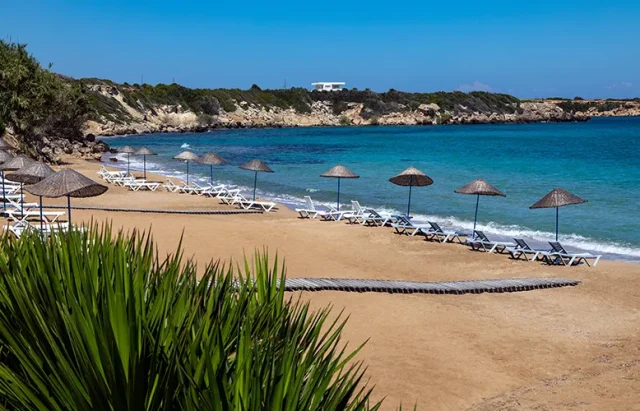
Cyprus has long been a favoured destination for British holidaymakers, renowned for its sun-drenched beaches and vibrant nightlife. The United Kingdom remains the leading source of tourism for Cyprus, accounting for 35.6% of the total tourist traffic in June 2024.
However, beyond its picturesque coastlines, Cyprus offers a wealth of experiences that delve into its rich history, diverse landscapes, and cultural traditions. Exploring these areas reveals a multifaceted destination that extends past the typical beach holiday.
Rich historical heritage
Cyprus’s history spans millennia, with evidence of human habitation dating back to the Neolithic period. The island is dotted with archaeological sites that narrate tales of ancient civilisations.
In the UNESCO World Heritage site of Paphos, visitors can explore the Tombs of the Kings, an impressive necropolis dating back to the 4th century BCE.
The Kourion Archaeological Site near Limassol features a Greco-Roman theatre with stunning views of the Mediterranean. Additionally, the ancient city of Amathus offers insights into the island’s past, with ruins that speak of its former glory.
Vibrant cultural experiences
Cyprus’s cultural tapestry is woven with influences from various civilisations, including Greek, Roman, Byzantine, and Ottoman. This rich heritage is celebrated through numerous festivals and traditions.
The Limassol Carnival is held annually before Lent and showcases elaborate costumes and parades, reflecting the island’s festive spirit. In the village of Lefkara, known for its intricate lacework and silver handicrafts, visitors can witness artisans at work, preserving age-old traditions.
The Cyprus Wine Festival in Limassol is another highlight, celebrating the viticulture with music, dance, and, of course, wine tasting.
Diverse natural landscapes
Despite its incredible beaches, Cyprus boasts a variety of natural landscapes. The Troodos Mountains, located in the heart of the island, offer a refreshing retreat with pine forests, picturesque villages, and hiking trails leading to waterfalls like Caledonia.
The protected nature reserve of The Akamas Peninsula is home to diverse flora and fauna, including the endangered loggerhead sea turtle.
Visitors can explore the Avakas Gorge, a natural wonder with towering limestone walls, or take a boat trip to the Blue Lagoon, renowned for its crystal-clear waters.
Thriving wine regions
Cyprus’s winemaking tradition dates back over 6,000 years, making it one of the oldest wine-producing regions in the world. The island is divided into several wine routes, each offering a unique experience.
The Commandaria region is famed for producing the world’s oldest named wine, Commandaria – a sweet dessert wine. In the Krasochoria region of the Troodos foothills, visitors can tour family-owned wineries, sampling indigenous grape varieties like Xynisteri and Maratheftiko.
The annual Cyprus Wine Festival in Limassol highlights the island’s vinous heritage, offering tastings and cultural performances.
Conclusion
While Cyprus’s beaches are undeniably alluring, the island’s rich history and cultural traditions offer a special travel experience.
Incorporating these elements into your Cyprus holidays ensures a well-rounded and enriching journey, showcasing the island’s broad appeal beyond its idyllic beaches.





